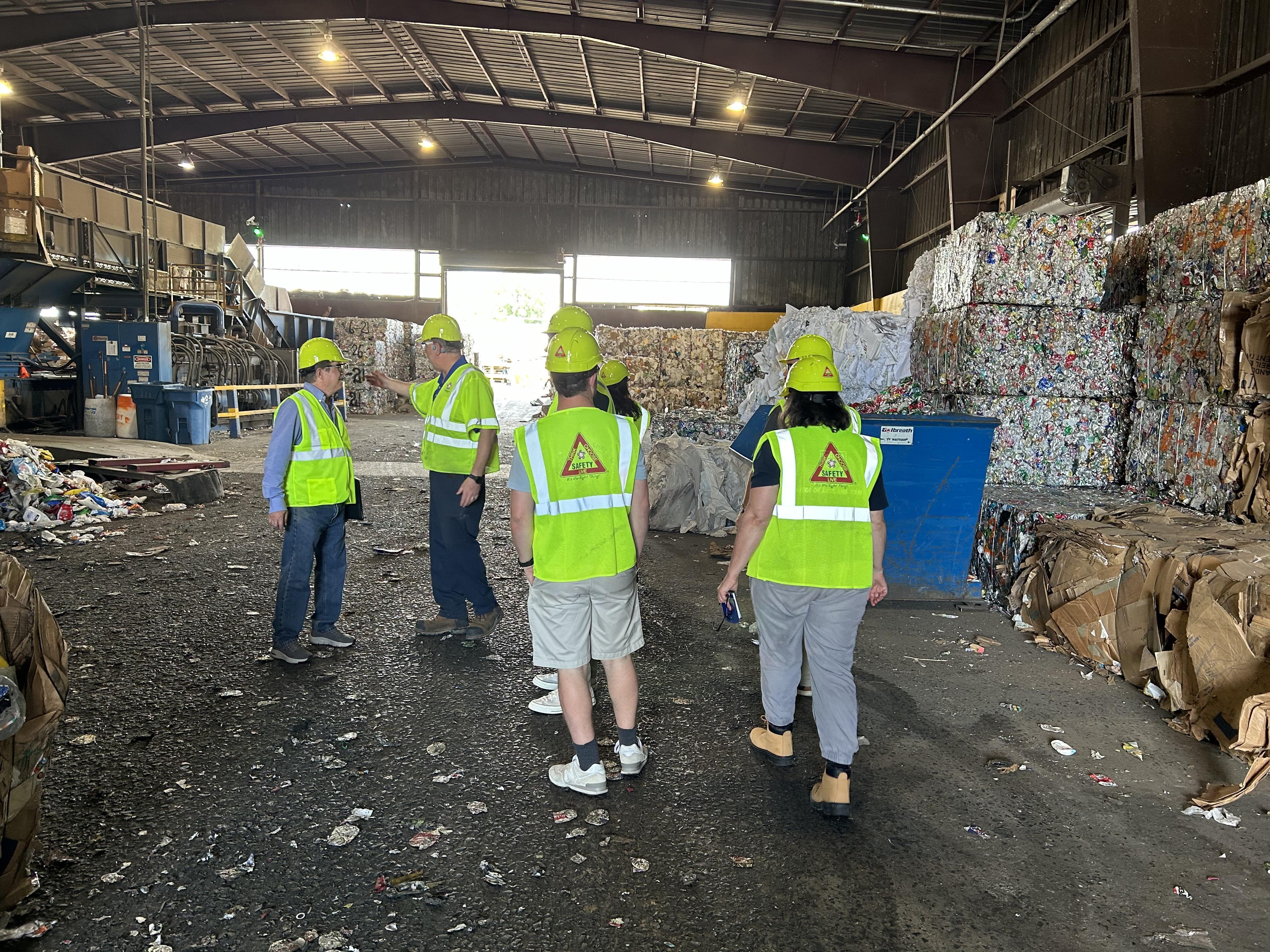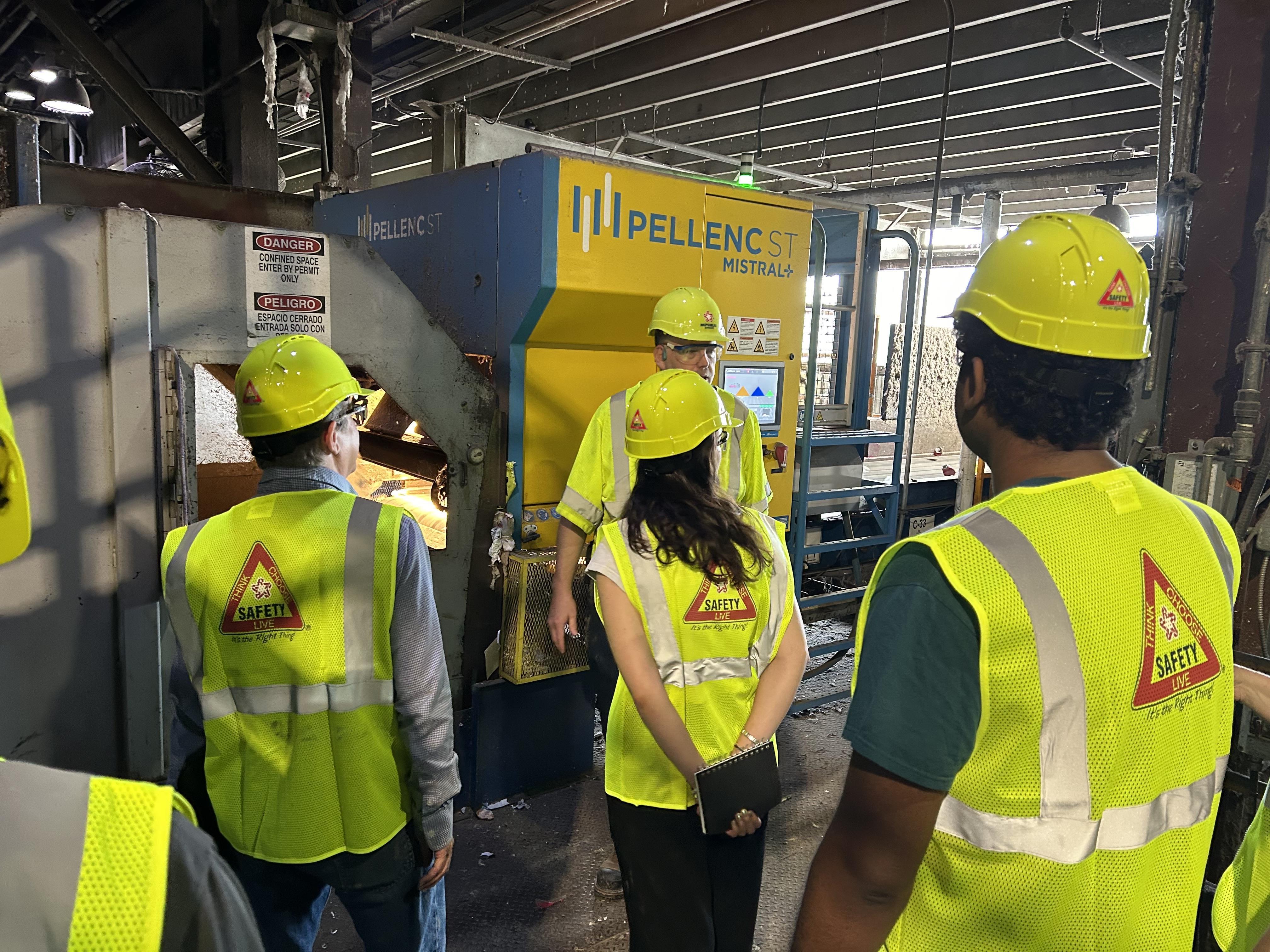Drexel Climate & Sustainability Field Trip to Republic Services
August 7, 2024
What happens to our campus recyclable materials after they are trucked away? That’s a question the Climate & Sustainability team has had, and Drexel’s recycling partner Republic Services, Inc. graciously invited us to tour their recycling facility in King of Prussia. Our goal was to better understand how recycling works, so that we can create information campaigns to improve Drexel's recycling practices. Along with the students and staff who joined us on this recent field trip, we came away with a new understanding of the waste recycling process.

Upon entering the facility, we immediately saw the volume of materials being processed, highlighting the important role recycling plays in waste management and landfill diversion. As we toured through the facility, we observed both human workers and advanced machinery sorting materials based on type and quality. We observed the machinery shredding plastics, turning them into bales similar to bales of hay, which are then sold to manufacturers who can use that material. Republic staff shared with us the notion of "wishful recycling," which is the practice of recycling non-recyclable items in hopes that they will be processed. We saw computer parts, baby diapers, clothing, and even items of luggage among other types of trash that ended up arriving at the facility in a recycling truck as wishful recycling. Lithium batteries and electronics are dangerous in recycling plants due to the fire hazard they pose when compacted. Plastic bags clog the machines and disrupt the mechanical sorting processes. Our team was reminded of the importance of accurate waste sorting at home and on campus to ensure that everything we throw into the recycling bin does end up being recycled.
About 10%-12% of our recycling ends up in landfills due to the contamination of otherwise re-usable items, emphasizing for us the need to share information about recycling basics. Containers that still have food in them get sorted by the machines into landfill trash, and that means giving food containers a rinse before tossing into the recycle bin is part of best practices. Plastic beverage bottles should be emptied and the caps put back on before recycling.
 Republic staff noted that market demand drives which plastic materials are “recyclable,” in the sense of having an industrial use after being a water bottle or butter container. Plastics labeled 1, 2, and 5 are in demand for manufacturing products like toys, while number 6 and 7 plastics have little market demand and are usually discarded unless mixed in with type 5. Our glass bottles are mostly reused for roadbeds, like the one that was quickly built after a truck fire last year destroyed a section of Interstate 95 in northeast Philadelphia.
Republic staff noted that market demand drives which plastic materials are “recyclable,” in the sense of having an industrial use after being a water bottle or butter container. Plastics labeled 1, 2, and 5 are in demand for manufacturing products like toys, while number 6 and 7 plastics have little market demand and are usually discarded unless mixed in with type 5. Our glass bottles are mostly reused for roadbeds, like the one that was quickly built after a truck fire last year destroyed a section of Interstate 95 in northeast Philadelphia.
The Climate & Sustainability team pays attention to Drexel’s recycling practices because recycling reduces the need for raw material extraction, conserves natural resources, and reduces energy consumption. Understanding that the system is far from perfect, we think it’s worth trying to do it well our campus, combined with practices that reduce the consumption of single-use items. This visit to see what happens to our recyclables gave us useful new tools for improving Drexel’s sustainability performance.
For more information about recycling at Drexel, visit the Real Estate and Facilities website.